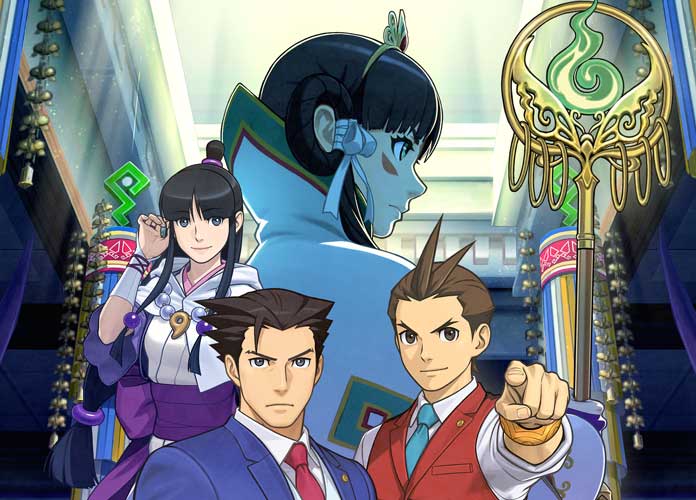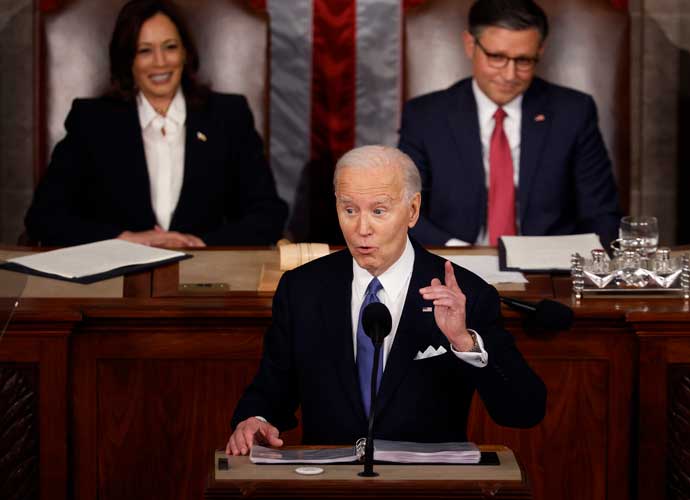‘Phoenix Wright: Ace Attorney – Spirit of Justice’ Game Review: It’s Fine!

4/5
Before I formally begin, I should clarify something: this review will contain some spoilers. Ace Attorney thrives on its stories and characters, and it’s impossible for me to critique or praise an installment in the series without discussing those elements to a certain extent. So, while I will not unveil any of the murderers or major plot twists, I implore you to stop reading now if you want to go in fresh.
> BUY NOW: ‘Phoenix Wright’
Phoenix Wright: Ace Attorney – Spirit of Justice is the latest entry in Capcom’s well-established visual novel franchise. It’s the sixth mainline Ace Attorney game, and it’s the second mainline entry for the Nintendo 3DS. As with its immediate predecessor, Dual Destinies, Spirit of Justice stars three defense attorneys: Phoenix Wright, Apollo Justice and Athena Cykes. However, the former two share the spotlight this time, with Athena primarily working as an assistant.
All three attorneys retain their respective tools, which are usually utilized throughout the five cases to spice up the investigative portions.
Phoenix’s Magatama responds when someone is lying, and activating it allows the man in blue to confront the bystander. At certain moments during the discussion, you’ll be given opportunities to refute their testimony by presenting evidence. If you present the correct pieces of evidence, you’ll break the witness’s Psyche-Locks and unlock the truth. The Magatama is limited to the investigation segments.
Apollo’s bracelet effectively serves the same purpose, although the red attorney’s method of obtaining the truth is different; Apollo’s bracelet enhances his sight, rendering him able to detect subtle changes in body language. By highlighting these abrupt alterations during the testimony, he can “Perceive” the witness’s lie.
Athena’s gimmick, the Mood Matrix, is exclusively used in court. As the Wright Anything Agency’s psychology expert, she can utilize Widget and her sensitive hearing to detect the witness’s emotions in their testimony. The Mood Matrix contains four basic emotions – happiness, sadness, anger and confusion – and it’s up to the leading attorney to determine which emotion is inconsistent with their statements. As you reduce the witness’s stress, they’ll remember more details and adjust their testimony accordingly.
The faraway Kingdom of Khura’in is the primary setting, as over half of your game time will be spent there. Khura’in, a religious nation governed by its queen, has a peculiar legal system because of the Defense Culpability Act, which means if the defendant is found guilty of a crime, their attorney will be found just as guilty for aiding a criminal. As such, attorneys are demonized by the community and they have stopped practicing in Khura’in.
Spirit of Justice‘s mechanical contribution to the series is its Divination Séances, which portray the victim’s final few seconds before his or her death. The kingdom’s princess, Rayfa Padma Khura’in, will then interpret them and provide her “Insights” explaining what transpired.
During these cross-examinations, players are presented with the scene and must point out the contradictions between Rayfa’s Insights and anything the victim experienced. If that sounds complicated, rest assured that it isn’t; Phoenix is walked through the process in the first episode, which, as per tradition, is an easy introductory case against a Payne.
The first trial also (re)introduces the standard method trials proceed by: presenting evidence. When a witness makes a statement that disagrees with a piece of evidence in the Court Record, you present it to expose the inaccuracy. Occasionally, a testimony is seemingly airtight, so you’ll need to press certain statements for more information.
The second episode (re)introduces players to the series’ investigation segments. Here, the leading attorney will encounter people, examine the crime scene(s), and gather evidence to use in court. Episode 2 also reintroduces Ema Skye, and she’ll teach you how to use her touch screen-controlled forensic equipment.
Episode 1, Episode 3 and Episode 5 of Spirit of Justice feature an overarching story discussing Khura’in’s history and anti-lawyer culture, and it proved to be a much more elaborate (though significantly more absurd) realization of “the dark age of the law” theme that Dual Destinies squandered. Overall, Episode 3 is the strongest case in Spirit of Justice; it’s nicely paced, and its story could only exist within this setting.
The odd numbered episodes don’t directly continue that narrative, but they still provide character development for members of the main cast. Unfortunately, Episode 4 is without a doubt the weakest episode. It feels shoehorned in because the development team felt obligated to let Athena be the lead in a case. Episode 4’s placement in the timeline can also invoke some ire; it was likely positioned between Episode 3 and 5 to provide breathing room between the high stakes in the Khura’in courthouse, but it felt rather inharmonious in the overall narrative.
The final four cases share their prosecutor, which brings me to the biggest problem with Spirit of Justice: Nahyuta Sahdmadhi. The monk is billed as a prolific “international prosecutor” who can guide the outcome of a trial with his “karmic flow,” and who can become an instant expert in any subject through intensive research. Barring perhaps one specific moment in Episode 3, none of that amounts to anything that distinguishes Nahyuta from his forbearers, and even his pivotal moment in Episode 5 still incurred a feeling of apathy.
The “Last Rites Prosecutor” is aggressive to provide trials with the requisite tension, but his story arc doesn’t validate his animosity. His presence holds up somewhat better in the Khura’in court, where the populace would be conditioned to be prejudice against our heroes, but even then I still longed for an Edgeworth or a Godot.
Regardless of Nahyuta, the quality of the cases is consistent, and even Episode 4 isn’t outright bad. Episode 5, fitting in with another proud Ace Attorney tradition, is the largest case in Spirit of Justice, as it’s meant to serve as the game’s epic finale. It’s also the episode that establishes Spirit of Justice as Apollo’s game; Episode 5 explores his backstory and it can be perceived as Apollo’s parallel to the final case from Trials and Tribulations.
Sadly, Spirit of Justice‘s finale doesn’t quite meet that high standard, partially because it lacks the buildup, at one point poorly apes a previous case, and partially for additional reasons that can’t be discoursed without revealing what happens. Fortunately, while the identity of Spirit of Justice‘s villainous mastermind is predictable, the final trial is filled with several great revelations, making the final confrontation an exciting, dicey affair. One of the plot twists will, in my estimation, even be remembered as one of the best twists in all of Ace Attorney. A great ending awaits those who finish the case, and it has some very interesting implications for the inevitable sequel.
Capcom’s localization was, as usual, a high quality effort and, unlike last time, there weren’t too many typos littered throughout the script. Instead, the script is littered with an overabundance of flashbacks. They ultimately didn’t detract from my enjoyment, but it was almost condescending to be forced to reread dialog that I first read a mere four minutes beforehand.
Each Ace Attorney game is developed to be enjoyable as a standalone experience, but Spirit of Justice can’t be fully appreciated without having first-hand knowledge of the previous installments. Maya’s and Ema’s return and Apollo’s growth will lack their impact if this is your first visit to “Japanifornia.” Incidentally, Apollo Justice: Ace Attorney is getting re-released soon, so that would provide a more appropriate starting point.
The soundtrack is line with prior Ace Attorney games. Recurring characters bring their signature leitmotifs with them, some of which were remixed for Spirit of Justice, and new characters supply new themes. Spirit of Justice’s score fails to reach the highs attained by previous games, but everything at least achieves the level of background music.
Graphically, Spirit of Justice is, well, aces. All of the characters are lovingly animated, both in standard gameplay and, occasionally, in cutscenes. Animated cinematics are strewn throughout the game as they were in Dual Destinies, though they’re less common this time. Furthermore, Khura’in provides a nice change of scenery from the standard Ace Attorney aesthetics.
Phoenix Wright: Ace Attorney – Spirit of Justice is a respectable addition to the series’ mythos. It doesn’t shake up the proven formula, but it supplies a quality installment that fans of the series will derive enjoyment from. Let’s just hope we’re presented with a more grounded setting and a less objectionable rival next time.
RELATED ARTICLES
Get the most-revealing celebrity conversations with the uInterview podcast!



 Click here for the Best Celebrity Bikinis Of Summer 2016 Photos Slideshow
Click here for the Best Celebrity Bikinis Of Summer 2016 Photos Slideshow




Leave a comment